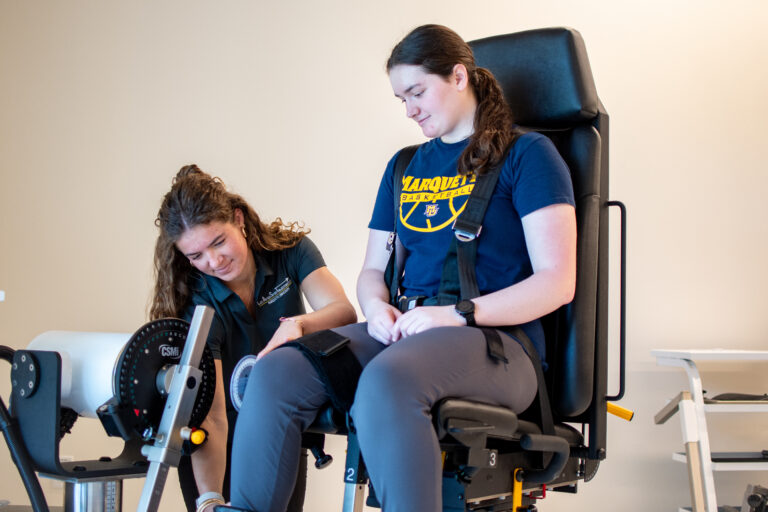
Dr. Matthew Hearing, assistant professor of biomedical sciences in the College of Health Sciences, has received a R01 grant worth $2,067,753 from the National Institutes of Health’s National Institute on Drug Abuse to study how the brain changes in the transition to opioid addiction and how factors like biological sex influence this development.
Hearing and his team will use a variety of techniques to identify how opioids disrupt function of brain regions responsible for flexible decision making and behavior control. The goal is to gain insight into how progressively developing changes in the function of these brain regions drive the development of uncontrolled opioid use, with the potential to inform more tailored treatments based on sex and stage of addiction.
“Opioid-based drugs are mainstays for clinical pain management despite the risk of dependence, addiction and cognitive impairments, even when taken as directed,” Hearing said. “Despite this, the neurological underpinnings of opioid addiction remain relatively under-investigated, which limits our understanding of the neural and associated psychological basis of addiction to opioids. Further, behaviors which are core aspects of addiction are expressed only by a fraction of those exposed to the drug – highlighting a significant degree of individual variability and a need to identify largely unknown factors that convey risk or resilience.”
With this grant, Dr. Hearing’s group will study how progressive exposure to opioids alters neural circuit connectivity and information processing in the prefrontal cortex — a brain region responsible for control of decision-making, drug taking and inhibition of habitual behavior — over time, determine how these changes directly contribute to impaired decision-making and uncontrolled drug taking, and better understand what changes in neurons drive modifications in connectivity and function. Importantly, they will also determine whether these drug-induced adaptations occur differently across biological sex and in individuals that are susceptible versus resilient to developing habitual drug taking.
“This grant award will enable Dr. Hearing and his research team to powerfully address mechanisms of opioid addiction in an ultimate effort to aid those suffering from addictive illness,” said Dr. William E. Cullinan, dean of the College of Health Sciences. “It is also further external validation of the groundbreaking neuroscientific research being performed by Dr. Hearing and his colleagues within the department and college.”
Hearing’s co-investigators on this award include several colleagues from the Department of Biomedical Sciences, including Dr. Robert Twining, research professor; Dr. Robert Wheeler, associate professor; and Dr. Daniel Wheeler, postdoctoral fellow. Hearing is also a principal investigator on an R01 award for a neuroscientific study on substance use disorder in women and collaborated with Wheeler on his NIH funded neuroscientific research into psychiatric disorders such as addiction and depression.
The National Institutes of Health’s Research Project Grant (R01) is the original and historically oldest grant mechanism used by the NIH. The R01 provides support for health-related research and development based on the mission of the NIH. R01s can be investigator-initiated or can be solicited. The mission of the National Institute on Drug Abuse” is to advance science on drug use and addiction and to apply that knowledge to improve individual and public health.


